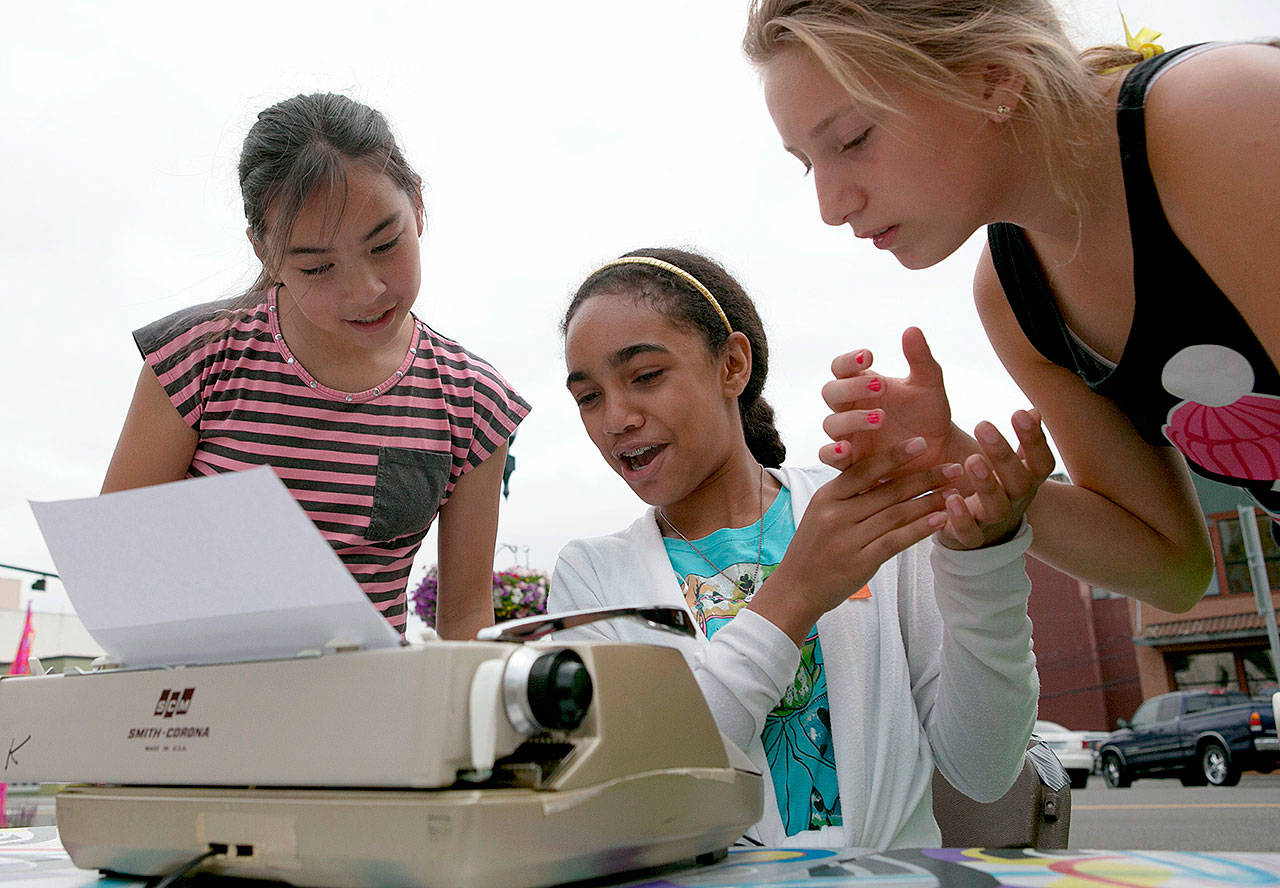By The Herald Editorial Board
We get it: When the issue turns to discussions of budgets, most of us look away. The long tables of projected revenues and expenses do seem to run together — and unless the words “tax increase” rouse us from daydreams — we’d rather give our attention to other issues, important or at least entertaining.
Talk of tax increases isn’t expected as officials with the City of Everett begin final budget talks and a public hearing starting at 6:30 p.m. Wednesday during the regular City Council meeting, but Everett residents might want to listen in — and even testify — regarding a budget for the coming year that will shape what services the city can afford next year and in coming years.
“This has been the most challenging time in our lifetime,” said Mayor Cassie Franklin, last week in a telephone interview. “Not in the city’s, but in our lifetime.”
The challenge has, as crises sometimes do, forced the city to rethink which services it can offer, how it continue some and what innovations can help deliver current programs.
Already confronted with an $18 million structural deficit as expenses have outpaced revenue, city officials had already been considering changes to services and how they are delivered. Then the coronavirus pandemic struck, forcing closures in businesses and a deep loss of revenue. Millions in lost revenue meant layoffs and furloughs of scores of city employees, voluntary separations and the elimination of unfilled positions; in all, there are about 160 fewer city employees, cuts that leave their own impact on the city’s and county’s economy.
With only a handful of exceptions, the mayor’s budget keeps those cuts on the books but still seeks to assure the city can maintain high standards for quality of life, focusing on delivery of a safe community, responsive government, economic and cultural vitality, housing, transportation and infrastructure, education and workforce development and an engaged and informed community.
Recent discussions and a city council decision to accept a federal Department of Justice grant are one example of how the city administration has attempted to add to city services rather than simply looking for more cuts. The Community Oriented Policing Services grant offers the flexibility to hire up to 16 police officers over its three-year term; but with the city responsible for associated costs to equip officers, the mayor’s budget proposes adding only three in the grant’s first year. The addition of two bicycle officers to the current four and one motorcycle officer to the current three, Franklin said, will allow the city to expand the popular policing program to the city’s south end neighborhoods; and a fourth motorcycle officer will increase patrols for traffic safety.
Still, much of the attention on Everett’s budget will focus on cuts and losses of popular and valued programs and facilities. Some of those decisions, of course, have been forced by the pandemic; there’s little sense in allocating funds to the Carl Gipson Senior Center, the swim center at Forest Park of the Fourth of July parade, when Covid-19 is calling the shots on when those will open again. In the same way, the city’s two library branches — now offering services online and curbside — won’t open to patrons until the county reaches Phase 4 of the state’s Safe Start plan.
In response to both the pandemic and budget constraints, the mayor’s budget halves the allocations to the city’s cultural and performing arts programs; those cuts can be hard to accept for a city that has long celebrated the arts with concerts in its parks, movies under the stars and programs that roll out typewriters and pianos in front of businesses to coax writing and music from passersby. Most of those programs will continue their Covid sabbaticals. But the mayor’s budget continues funding for Sorticulture and is encouraging creativity through grant funding.
Likewise, the proposed budget puts an emphasis on maintenance of parks, as well as park development with the new Emma Yule Park near the new YMCA and a trail around Silver Lake, but it will cut recreation programs that Franklin hopes can be taken up by other organizations. That may be the model for the future throughout the budget, with the city providing facilities and others providing programs.
One area of significant potential savings to the city, Franklin identified — and one that still assures a high level of service — would be for the city to enter into a regional fire authority agreement with other adjacent agencies. Franklin and Fire Chief Dave DeMarco continue discussions with fire agencies and city council members Brenda Stonecipher and Scott Bader.
While the subject has been floated in the past, further discussion of an increase to the city’s levy rate is likely to wait until after a report is completed by the city’s fiscal advisory committee later in October. That discussion could provide answers regarding the future of many city services.
“We have to see where the pandemic takes us and where the conversation takes us,” Franklin said.
Until then, the coming year should allow city residents to get a sense for the level of services the city can provide with the current level of funding allowed. Then, next year at this time — and with hopes the pandemic is well behind us — Everett residents should be prepared to make some decisions on what they want their city to provide and what they’re willing to pay.
Talk to us
> Give us your news tips.
> Send us a letter to the editor.
> More Herald contact information.

























